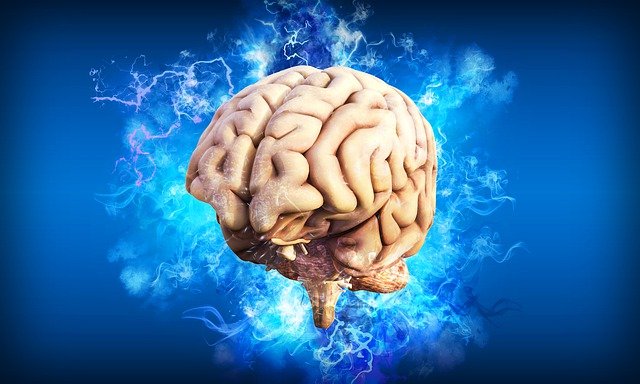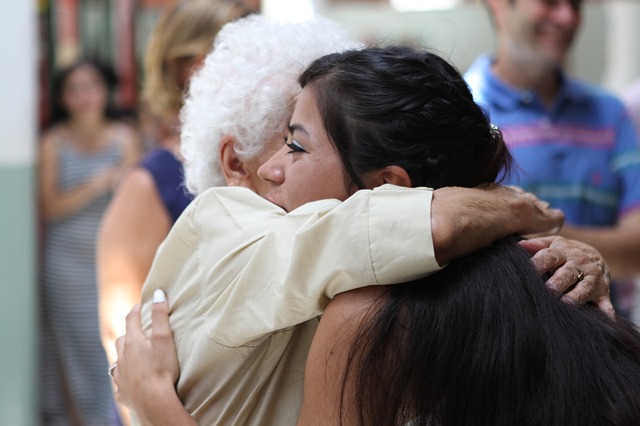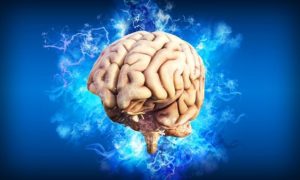How the Pandemic has Changed Your Brain

Christmas consumes December, January is spent recovering … and here we are in February. Shouldn’t we be back to routines, kicking goals and doing all the things we used to do before the Pandemic, if not more?
If you feel that you’ve lost your Mojo, are lacking in motivation, or just couldn’t be effed this year, don’t beat yourself up about it.
Don’t feel like you have to have your stuff together, be all organised, or have your plans in place already. For so many people – not just you – the last two years have taken their toll, no matter how well you have handled them.
You may have pivoted, adapted, endured and made the best of the last two years BUT, according to researchers – THE PANDEMIC HAS CHANGED YOUR BRAIN!
This year, we aren’t just coping with the collective comedown of the end of Christmas, New Year and Australia Day. This year we are trying to get back to ‘normal’ in a world that hasn’t been normal for quite a while – and our brains are tired from being wired for so long.
According to Susan Rossell, Swinburne University of Technology professor of cognitive neuropsychology, our brains have lived through two years of extreme threat and anxiety. The stress hormones, adrenaline and cortisol, are increased to help us to be vigilant but the human brain wasn’t designed to be at high alert for two years straight – it was made for a more ‘fight or flight’ reaction. Danger is recognised, acted upon, then over and the body goes back to normal stress levels. Our bodies and brains haven’t had a chance to go back to normal and this affects our ability to cope. We may be less resilient but also less fearful.
“Because the levels are constantly high, there’s only so much the brain can produce and there’s only so much we can stay vigilant to. It’s flooded the system, so if anything else happens we have no extra capacity,” Susan Rossell said.
As we head toward the second anniversary of the pandemic, with all its changes and fears, our brains have been on a hormonal rollercoaster – and it takes a toll. We are tired – mentally, physically and emotionally worn out.
The best tonic for adrenal overload is …. Drumroll please …. Human interaction.

Two years ago we could socialise, network, dance, give and receive physical affection, go places or just be together. Border closures, lockdowns, social distancing, mask mandates and other social restrictions greatly curtailed our ‘normal’ physical interactions with each other. These barriers and restrictions may have been for our own protection but have also added to the anxiety for many.
“Humans are a social species and we know that it helps us thrive,” says Professor Rossell. “Our brains need the chemicals that are produced — the oxytocin and the dopamine — and we’ve been seriously neglected of that.”
While we have kept up our communications via electronic means, Facetime, Zoom calls and the like, there is no substitute for the real thing. We need physical contact with other human beings.
Interestingly, the malaise that the pandemic has on our brain – that feeling of resignation that we are probably all going to get Covid anyway, is the very feeling that means people are less fearful of human interaction again. Many people are choosing not to deny themself a hug or social gathering with friends any longer – our brains have had enough of trying to protect us and so no longer register fear of such things to the same degree as earlier in the pandemic.
There are some positive outcomes to our minds and lives from the pandemic. People have taken the opportunity to recalibrate, to reconsider how they live on a daily basis.
“There’s considerable research coming from around the world suggesting a bigger emphasis on local communities, local environment, more people who grow their own veggies, take daily walks, and think about their diet,” said Professor Rossell.
Self-care has become more talked about and recognised as a necessity rather than a luxury. On an intuitive level people are becoming more aware of heading towards burnout and knowing when to stop and recuperate. You’ve probable experienced it yourself – that feeling that you aren’t being productive and need a good break, even if you feel you haven’t worked hard enough to deserve the break.

This pandemic-induced malaise is not about deserving a break, it’s about NEEDING one. You are not lazy, unmotivated or a slacker. Your brain is tired. Cut it, and the rest of your body, some slack.
So, what can you do to get through this stage?
- Don’t beat yourself up. There is a reason you feel like this. It’s not your fault.
- Look after your health – fresh air, fresh food and some exercise does wonders.
- Practice selfcare – get some rest, do things purely because they bring you joy. Do not feel guilty about taking care of yourself. You need it.
- Be grateful – practicing gratitude every day will raise your spirits and general level of happiness Happiness has more energy than sadness or discontent.
- Set small goals and celebrate their achievement. Have only a few things on your To Do List each day and feel triumphant about every single one that you achieve.
- Reach out to people. Remember the best cure for adrenal overload is human interaction. Visit your family. Visit your friend. Gather for a meal or a brain-storming session or boardgames … whatever will bring you together.
It’s not just you, we are all feeling the effects of the past two years. Take a deep breath, stop struggling, and look after YOU. You don’t just deserve it, you NEED it. We all do.
N.B. Quotes from Dr Susan Rossell are cited from the blog ‘Covid-19 is changing our brains and making some of us rethink our lives, experts say’ by Jeremy Fernandez on ABC News website, posted Sunday 6Feb 2022. Here is the link – https://www.abc.net.au/news/2022-02-06/covid-19-changing-brains-childhood-rethink-lives-experts/100804482?utm_campaign=abc_news_web&utm_content=link&utm_medium=content_shared&utm_source=abc_news_web

So true Sally. More than ever, people also need to start listening to their inner voices and make up their own minds without being influenced by media and environment.
Great article
Thanks for sharing